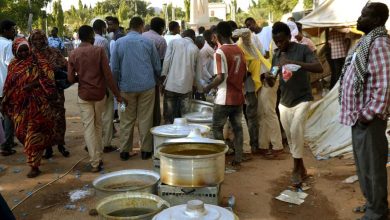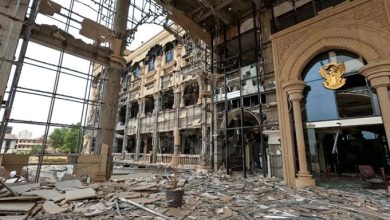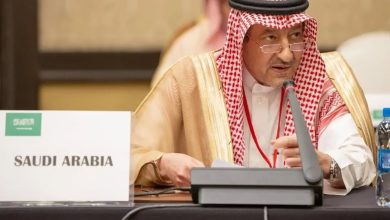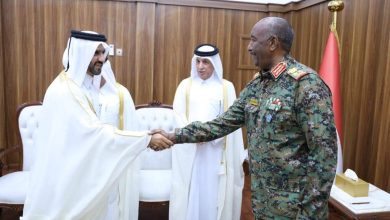“Ardoul”… The ground is shaking, and the “fragile ice flakes” are falling
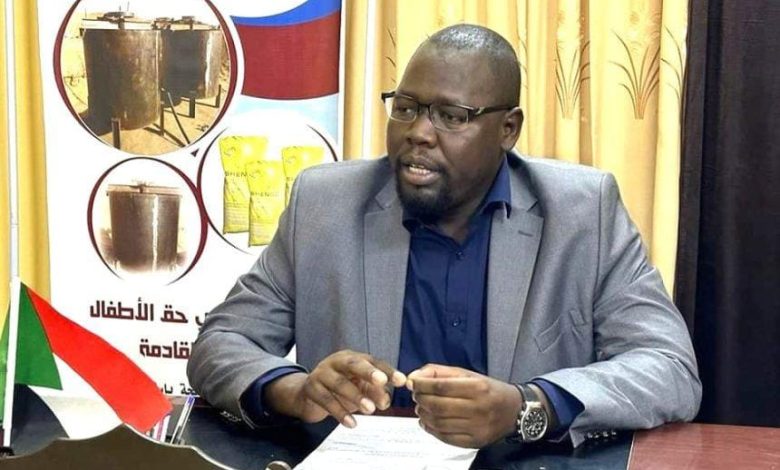
Report by Talal Mudathir – Sudan Events
“Thank you very much.
Today, my assignment as General Director of the Sudanese Mineral Resources Company has ended after three and a half years of continuous work. I am thankful to all my colleagues during this period and grateful to everyone who helped and supported me, especially my small family, who bore the cost of the public work. I achieved three significant goals. They are vital to me, and others are small ones that I consider to be gazing stars in my career and life, which I will detail later.”
With these words, Mubarak Ardoul bid farewell to his career, opponents, loved ones and followers via his page on the social application “Facebook” last Sunday, announcing the end of an era of his shifting experiences between struggle and political work and, finally the state executive apparatus as director of the Sudanese Mineral Resources Company.
A controversial personality
Mubarak Abdul Rahman Ahmed Adam “Ardoul”, which is his real name, has remained the most prominent controversial figure since the era of former Prime Minister Dr. Hamdok.
His origins come from the Nuba Mountains region, “the city of Dilling,” early in 1982. He holds a bachelor’s degree in applied and industrial chemistry in 2004 and a master’s in studies, diplomacy and international relations from Cavendish University, Uganda, in 2019. He suddenly appeared in the state executive apparatus as the director of the largest financial tributary of the Sudanese economy…the Mineral Resources Company, where everything that glitters is gold.
The rise of political levers
Ardoul entered the company’s doors as its deputy director following revolutionary positions he adopted and through which he supported the December Revolution that overthrew Al-Bashir’s regime before political levers quickly carried him to appoint him as its general director on April 20, 2020, by decision of Hamdok.
On that day, the Mining Sector Entities Association undertook the task of lighting the first spark of rejection of the man, considering that the decision to appoint him represents a diminution of the values of the revolution, the justice of which requires that appointments to state jobs be made in the specialized and public sphere. Rrdoul was able to silence these voices and pass through the initial storm before the most violent storm winds quickly began. He was almost ousted from office following an order he directed to mining companies to write billions of checks to contribute to the inauguration ceremony of the governor of the Darfur region, Mani Arko Minawi, and a change in the personal account of the company’s director of social responsibility, causing Sudanese public opinion to erupt and the prime minister intervenes, absorbing the people’s anger by calling him to account and then reprimanding him.
Financer of sit-ins
On the political level, Ardoul represented the arch-political opponent of the forces of the Declaration of Freedom and Change after he initially allied with his companion, Ali Askouri, whom they called the Democratic Alliance for Social Justice.
Ardoul assumed the presidency of the political bureau. They quickly joined the Democratic Bloc that was formed against the political settlement that was taking place between the palace that had turned against the revolution and the Forces of the Declaration of Freedom and Change, “the ruling coalition at the time.” Ardoul formed deep alliances with the other parties that rejected the agreement under the banner of the “Democratic Bloc.”
It included alongside him Dr Jibril Ibrahim, the leader of the Justice and Equality Movement and the governor of Darfur, the head of the Sudan Liberation Movement, Minawi, and Al-Tom Hajo, the head of the Middle Path Movement, and others, to form with them the coalition rejecting the framework agreement and ended with organizing a famous sit-in that extended for several days in front of the presidential palace in Sudan. It was a sit-in that sparked a video clip on social media broadcast by activists showing protesters huddled around a small transport vehicle supplying them with bananas. It was popularly called the “banana sit-in.” Meanwhile, political opponents accused Ardoul of sponsoring it and financing his mobilization with gold and minerals money.
Beginning of the end chapters
During the last months of the war, problems seemed to surround Ardoul. He left for South Sudan and was subjected to harassment from a parliamentarian there, which ended with him leaving Juba. Later, he went to Cairo, and the newspapers were blown away by a leaked audio recording of him and people in which Ardoul spoke inappropriately about the head of the Sovereignty Council, Lieutenant General Abdel Fattah Al-Burhan, which made Al-Burhan angry. He returned to Sudan to carry out his duties as director of the Sudanese Mineral Resources Company. He met with General Al-Burhan, Chairman of the Sovereignty Council, on Friday after much trouble, and the acting Prime minister dismissed him on Sunday with a decision to end his assignment without announcing any justifications.
Will the winds of change that blew Ardoul carry him to another location? Or will the “golden” boy of the Nuba Mountains soon return to his longing, and the footsteps that took him away from the minerals will take him to the comrades there, repeating, “It is never enough”?!
